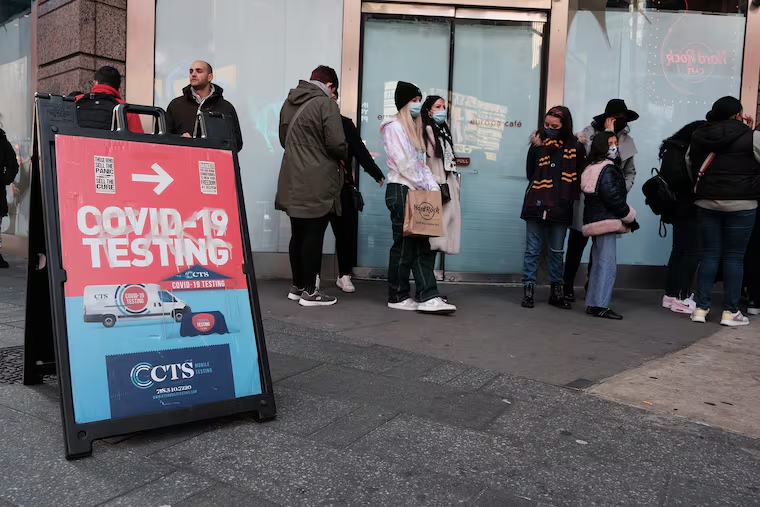Omicron might mean you should get a booster before six months
A booster would provide additional protection amid the rise in COVID cases, infectious disease experts say.

The FDA says people can get a COVID-19 booster shot six months after the second dose of either the Moderna or Pfizer-BioNTech vaccine. And for those who got the single-dose Johnson & Johnson vaccine, the waiting period for a booster is just two months.
But with the omicron virus variant on the rise, some clinics and pharmacies may be willing to let you jump the gun.
Medically speaking, is that a good idea?
The evidence suggests it can’t hurt, said Kathleen Neuzil, a professor of vaccinology at the University of Maryland School of Medicine. But as with so much else in the pandemic, the answer is not straightforward, and it may depend on an individual’s tolerance for risk.
The six-month cutoff was chosen partly because a person’s antibody levels have declined significantly by that point, said Neuzil, a fellow of the Infectious Diseases Society of America.
» READ MORE: If you're celebrating the holidays, seek COVID-19 testing and keep the guest list short
Antibodies start to decline even before then, but evidence from other vaccines suggests that longer intervals between doses can improve the long-term immune response.
That’s partly because the immune cells that make antibodies, called B-cells, mature with age, producing antibodies that can bind more efficiently, said Jason Diaz, a virologist and assistant professor in La Salle University’s Integrated Science, Business, and Technology program.
But some people may decide that omicron changes the equation. As the name suggests, a booster will boost antibody levels, likely offering more immediate protection against an infection even if the person’s long-term immune response has not fully matured, Neuzil said.
“You are balancing the longer interval with the need to protect from infection,” she said.
So if it has been only three or four months since your second dose of Moderna or Pfizer, a third dose might make sense, she said.
What’s more, Neuzil and Diaz agreed there is no reason to worry that the shorter interval would be unsafe.